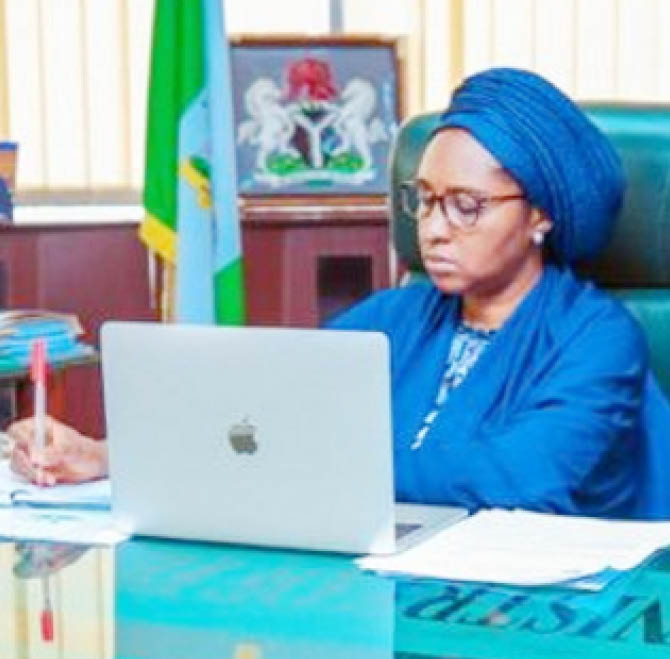Nigeria, which is currently burdened with a debt overhang, can turn around its economic fortunes by embracing equity investment instead of borrowing, and initiating new industrialization drives, economists have said.
From oil and gas, through transportation, to power sectors, the Nigerian government should embark on deliberate measures to attract equity investors in the real sector of the economy to stimulate production and create jobs, they explained in interviews with Daily Trust.
The Nigerian government has turned to borrowing from both local and foreign sources as revenue from oil, the country’s major export earner, fell due in part to oil theft and sometimes declining prices.
Trying to cope with the oil revenue shock through borrowing is a wrong policy, because “debt is a liability, while equity is not,” says Dr Ayo Teriba, economist and CEO of Economic Associates, a consultancy.
Change agent reformer-leader Nigeria needs in 2023
Community, lawyer bicker over N21m auction proceeds
“So, if your source of revenue – oil – has been affected by global development, issue equity instead of debt and attract equity into sectors that could replace oil as your major revenue earner. For example, what we have done in telecoms. You can count the number of people you have employed in telecoms. Oil will never employ as many people,” he said.
Signing the 2023 Appropriation Bill into law, President Muhammadu Buhari noted that it was a deficit budget. Details have since emerged that as much as N11.34 trn or about 52 per cent of the budget outlay will be needed to finance the deficit.
By the middle of last year, the country’s foreign debt stock showed that about $19.157b, or 47.82%, was owed to multilateral agencies, including the IMF, the World Bank Group, and the African Development Bank Group. The bilateral or country-to-country debts amounted to $4.700b or 11.73%, with the biggest component in this group is Nigeria’s debt to China, which stood at $3.928Bb. Besides these, Nigeria also has 13 Eurobonds amounting to $15.618b, with maturities stretching up to 2051, out of which $500m matures in July this year.
The Nigerian government currently also owes about N22.7tr to the central bank from funds borrowed through the Ways and Means window of the Bank. Servicing the debts is taking too much revenue, which is a threat to the performance of the economy.
Teriba wondered why Nigeria continues to issue debt instruments, instead of equity. “Debt will cost you interest; equity doesn’t cost you interest. You service debt; you don’t service equity. You have to pay the debt back; you don’t have to pay equity back,” he pointed out.
“Debt issuance makes you look rich. You must service it; you must repay it. Debt postpones the evil day. And for a country whose revenue is under challenge, you shouldn’t issue debt. Issue equity,” he counselled.
He noted that while Nigeria has oil, the oil price is collapsing because the world is moving towards cleaner energy sources, either gas or solar, but of which Nigeria has in abundance.
“Nigeria can, if you like, attract foreign investment into the solar space and the gas space and ensure that we move beyond oil cope with a sudden stop that the collapse in oil price amounted to,” said Teriba.
On his part, Prof Bongo Adi of the Lagos Business School believes this is the time for the government to fine-tune its industrial policies with a view to raising growth and productivity.
“If we have a plan-rational government, this is a time the various schemes it has employed over the past few years and target industrialization. Let them target the growth of the real sector,” Adi told Daily Trust in an interview. He said the government can do this by creating enabling market conditions that will help the people who can take up the enabling opportunities and create job opportunities.
“Today, the problem of Nigeria is not just that the jobs do not exist, but that the conditions to create or start businesses are completely constricted that no business can run consistently as it is today,” said the economist.
Besides the oil, gas, and power sectors, Teriba identified the railways as another area where equity investment will make a significant difference in the economy.
“Rail is the leading employer of people in the world. So, liberalise rail the way you liberalized telecoms; let investors come and invest in rail and open up that sector,” he said.
If that is done, he pointed out that there will be employment and that markets will grow anywhere you have rail terminals, ultimately becoming big markets. “That’s how Nigeria developed originally. Most of our large cities had rail terminals…Whether you are talking about Iddo in Lagos, Abeokuta, Ibadan, Oshogbo, or Kano, name them. Once rail gets there, a city grows around the rail station. So what are we talking about? What are we waiting for? Why do we have to go and borrow from China?”
“The same investors that came to telecoms will jump at rail if you open it up. We don’t have money to invest in power transmission and the power transmission grid is collapsing every now and then. Open it up for investors. Let investors come here the way they have come into telecoms. We have oil pipelines but we cannot monitor our pipelines and people are stealing our oil. Allow private investment in pipelines,” he advised the government.

 Join Daily Trust WhatsApp Community For Quick Access To News and Happenings Around You.
Join Daily Trust WhatsApp Community For Quick Access To News and Happenings Around You.


